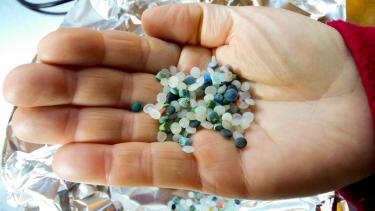
Gothenburg, Sweden Plastics pose significant threats to human health and ecosystems throughout their life cycles, according to two new studies by the International Pollutants Elimination Network (IPEN). To get a global picture of the role plastics play in transporting toxic chemicals around the world, IPEN worked with International Pellet Watch (IPW) and its NGO partners in 35 countries to investigate hazardous chemicals and pollutants present in:
- spilled or lost pre-production plastic pellets found on beaches; and
- recycled plastic pellets purchased from recycling facilities.
Both studies reveal the presence of toxic chemical additives and pollutants that pose multiple health threats to humans and the environment. The health effects include causing cancer or changing hormone activity (known as endocrine disruption), which can lead to reproductive, growth, and cognitive impairment. Many of the toxic chemical additives have several other known health impacts, persist in the environment, and bioaccumulate in exposed organisms.
IPEN science and technical advisor, and lead author of the beach pellet study, Dr. Therese Karlsson says: “These new studies further support our recommendation that international action to create more sustainable uses of plastics needs to look beyond waste to address harm and damage related to the toxic chemical additives in plastics.”
